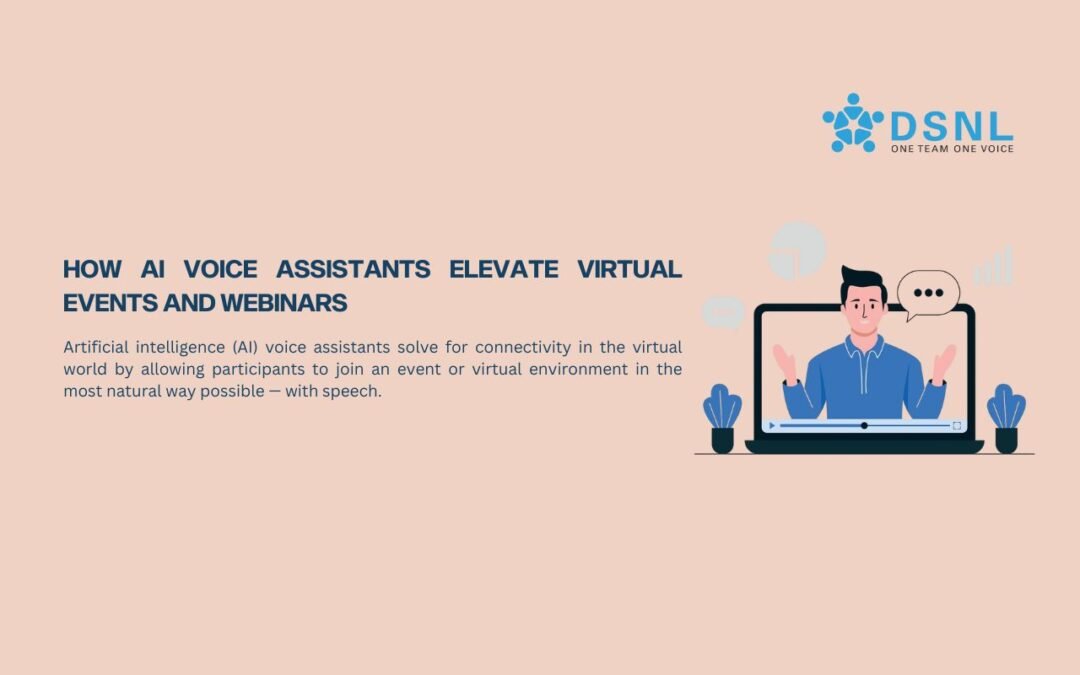Artificial intelligence (AI) voice assistants solve for connectivity in the virtual world by allowing participants to join an event or virtual environment in the most natural way possible — with speech.
Voice technology is one of the fastest-growing AI segments. Propelled by breakthroughs in natural language processing (NLP), voice assistants are leading digital event innovation, delivering immediacy, personalization and convenience to participants. With voice assistants, participants can engage by talking, browsing, and having conversations — rather than just sitting and watching — in a frictionless and, most importantly, human way.
Tailored Attendee Experiences
Virtual attendees are as diverse as the companies hosting webinars and virtual events. Some may register only to catch keynote speeches, while others may login for technical sessions or to network with coworkers and peers.
Providing Real-Time Support
Events have moving parts: session times, resources to download, technical snafus. Voice assistants can be real-time support systems for common attendee questions. Staffed virtual booths are now teaming up with chatbots and voice assistants to unburden personnel while helping make sure that participants don’t get frustrated trying to hunt down solutions on their own. Fast, accurate support delivered with voice-based chat is what will lead to seamless, professional events.
Personalization for Every Attendee
Attendees join a virtual event for different reasons and seek different value. Some may attend for the keynotes while others seek out in-depth technical sessions, and many want opportunities to network. AI voice assistants can help each person find what matters most to them.
Voice assistants can serve as virtual navigators to direct people to sessions aligned with stated interests, offer recaps of on-demand content or send push notifications when a favorite speaker is live on stage. The result is more personalized experiences that ensure participants walk away with more value from events.
Secure & Transparent Voice Interactions
Voice assistants often collect and work with participant data. This makes security and privacy key priorities. Systems need to be equipped with encrypted voice recognition, transparent consent mechanisms, and other safety measures to ensure conversations remain private and meet data protection regulations. Secure, transparent systems will also help build trust with participants, which in turn leads to better participation.
AI Voice in Events: The Next Frontier
AI voice assistants are in early adoption and the next frontier will be more contextually aware use cases. Live translation features are coming for global virtual events, along with AI-driven networking suggestions that will help connect like-minded attendees, and real-time content recommendations tailored to individual learning objectives.
Conclusion
AI voice assistants are set to redefine the future of virtual events and webinars. As virtual events grow in importance for scaling brands and communities, conversational AI is poised to shift from being optional to being critical. Smart brands will be early adopters of voice technology now, to set the standard for the next-generation of virtual events in the future. To gather any further information on how AI voice assistants elevate and develop virtual events, contact our experts today.

